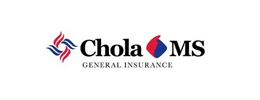Last updated on: September 19, 2025
Senior citizens in India enjoy significant tax benefits on health insurance premiums under Section 80D of the Income Tax Act. For individuals aged 60 years or above, the deduction limit on premiums paid for their own or their spouse’s/family’s health insurance is up to ₹50,000 per financial year. If you pay for your parents’ (who are senior citizens) health insurance, you can claim an additional deduction up to ₹50,000, allowing a maximum total benefit of ₹1,00,000 if both the insured and the parents qualify as senior citizens. Moreover, payments for preventive health check-ups within the overall limit are also eligible. These tax savings make health insurance an attractive financial planning tool for seniors, helping to manage medical expenses while reducing taxable income.
Senior citizens in India need health insurance more than ever, given the fact that medical expenses keep on rising and health risks are high as people age. Among the greatest benefits of investing in a health insurance policy of the seniors is the fact that there is an attractive tax benefit on health insurance of senior citizens as stipulated under the Indian Income Tax Act, Section 80D. The government has introduced some minor changes in 2025 to make healthcare and insurance cheaper and more beneficial to seniors and their families.
This is a complete guide with crystal-clear, useful and updated information about tax benefits on senior citizen health insurance premiums, reimbursement provisions, other deductions, eligibility, case studies, premium calculators, professional inputs etc.
Indian laws on income tax provide deductions on the payment of premiums on health insurance on self, spouse, children, and parents. These tax deductions are increased among the senior citizens, to accommodate their specific healthcare requirements and increased risk.
For the financial year 2024-25 (applicable for returns filed in Assessment Year 2025-26), seniors and their families can claim significant tax relief both under the old and new tax regimes, but with critical caveats.
An individual taxpayer is entitled to claim under Section 80D:
Did You Know?
As stated in the highlights of the Union budget 2025, almost 17 per cent of the senior citizens take higher coverage health policies on retirement, mainly because of better tax savings on the premiums.
Simply put:
Not all payments are qualified. Deductible premiums are:
A 63-year-old retired banker Ramesh had purchased a health insurance policy of 6 lakh rupees. In 2024, he paid 38,000 as annual premium under the same plan and 3,000 as a preventive check up. At tax filing, he claimed ₹41,000 (38,000 + 3,000) under Section 80D for health insurance tax benefit. Since his total did not exceed ₹50,000 (the upper cap for seniors), all of it was deductible. This deduction lowered his taxable income and effectively saved him ₹8,200 in taxes (assuming he was in the 20 per cent tax slab).
Pros:
Cons:
Expert Opinion:
Before buying health insurance of senior citizens, it is recommended by financial planners to compare the policies on the basis of best premiums, features and claim ratio using online marketplaces.
| Category | Age Group | Deduction Limit (per annum) | Deductible Payments |
|---|---|---|---|
| Individual taxpayer | Less than 60 | 25,000 | Self, spouse, children |
| Senior citizen | 60 and above | 50,000 | Self/senior parents |
| Family + elder parent | Both more than 60 | 1,00,000 | Self and parent, both seniors |
In case a senior citizen does not have any health insurance during the financial year, he or she can claim up to 50,000 of the actual paid medical expenses as deduction under Section 80D. This involves doctor visit, hospitalization, prescribed medications.
Note: This is applicable only to those who do not have any health insurance that is in effect in the year. This is particularly helpful to very old people who are not able to obtain new coverage on basis of age or pre-existing illness.
Q: Can a child and parent take the same deduction on the same premium of a senior citizen?
A: No, deduction is only allowed to the one who pays the premium.
Sushma is 62 years old and is a family floater with son and daughter-in-law. Her son is paying the premium of 52000 rupees a year. At tax time, he claims ₹50,000 as deduction for his mother’s coverage (senior citizen) and up to ₹25,000 for his wife and self.
Did You Know?
The market data indicates that health insurance premium of a senior couple of 62 years and 65 years is between 36,000 and 72,000 per year of 10 lakh sum insured depending on the type of policy and the provider.
Don’t just buy the first policy offered by your bank or agent. Compare plans of different insurers using well-reputed online marketplaces in:
These sites assist you to locate customized policies and remain in the purview of 50,000 Section 80D deduction.
Q: Would the preventive health check up bills of parents above 60 be claimable in case they are paid separately?
A: Yes, preventive checkups to the tune of 5,000 per annum is permissible under the 50,000 limit on senior citizens.
| Sum Insured | Typical Annual Premium (age 60+) | Tax Deduction Available (Section 80D) |
|---|---|---|
| 5 lakh | 32,000 to 45,000 | Up to 50,000 |
| 10 lakh | 40,000 to 72,000 | Up to 50,000 |
| 15 lakh | 52,000 to 82,000 | Up to 50,000 |
Source: Sample quotes of public and private insurers, 2025
Expert Tip:
Demand break up of annual premium with GST as GST is also deductible up to the limit.
Pre-existing diabetes meant that Ajay, 68, was unable to locate an affordable comprehensive health policy. During the year, he had hospital and medicine expenses of 63,000. He did not have insurance, so he was allowed to claim 50,000 under Section 80D as medical expenses on a senior citizen, which reduced his tax liability by 12,500 in the 25 per cent slab.
Q: Are there additional benefits in Section 80D to super senior citizens 80 plus?
A: No, the maximum is 50,000 on tax deduction on premium, but there are some schemes which have special medical relief outside Section 80D on super seniors.
| Type of payment | Deductible | Comments |
|---|---|---|
| Health insurance premium | Yes | Upto 50,000 in seniors |
| Preventive checkup | Yes | Under the overall limit of 50,000 |
| Cash payment (except checkup) | No | Not eligible |
| Standalone health rider | Yes | Only when it is attached to health policy |
| Foreign insurance | No | Only plans registered in India accepted |
Senior citizens (aged 60 and above) in India can claim a yearly tax deduction up to ₹50,000 under Section 80D for health insurance premiums, including policies for themselves and/or their spouse or parents. No insurance? Medical expenses actually incurred up to 50 000 are allowed as a deduction. Always purchase policy in official modes of digital and compare online insurance tool for best premium, maximum tax benefit and broader coverage. Time the payments of plans to take full advantage of the tax caps each year.
Q1: What is the maximum tax deduction for a senior citizen’s health insurance premium in 2025?
A: Maximum of 50,000 per annum under Section 80D, policy and preventive check up.
Q2: Will I be able to claim medical bills of my 70 year old father who does not have insurance?
A: Yes, actual paid medical expenses of up to 50,000 are deductible where no insurance is taken in the year.
Q3: Do we divide the premium among siblings in case of parents policies?
A: Only the paying sibling can take the deduction. Impossible to divide in case of separate payment.
Q4: Can top-up and critical illness plans of the seniors be tax deductible?
A: Yes, they are under Section 80D provided that the premium is paid on a senior citizen.
Q5: Does GST come under the tax deduction limit of health insurance of senior citizens?
A: Yes, the GST on the health insurance premium is also deductible amount under the 50,000 cap.












How could we improve this article?
Written by Prem Anand, a content writer with over 10+ years of experience in the Banking, Financial Services, and Insurance sectors.
Prem Anand is a seasoned content writer with over 10+ years of experience in the Banking, Financial Services, and Insurance sectors. He has a strong command of industry-specific language and compliance regulations. He specializes in writing insightful blog posts, detailed articles, and content that educates and engages the Indian audience.
The content is prepared by thoroughly researching multiple trustworthy sources such as official websites, financial portals, customer reviews, policy documents and IRDAI guidelines. The goal is to bring accurate and reader-friendly insights.
This content is created to help readers make informed decisions. It aims to simplify complex insurance and finance topics so that you can understand your options clearly and take the right steps with confidence. Every article is written keeping transparency, clarity, and trust in mind.
Based on Google's Helpful Content System, this article emphasizes user value, transparency, and accuracy. It incorporates principles of E-E-A-T (Experience, Expertise, Authoritativeness, Trustworthiness).